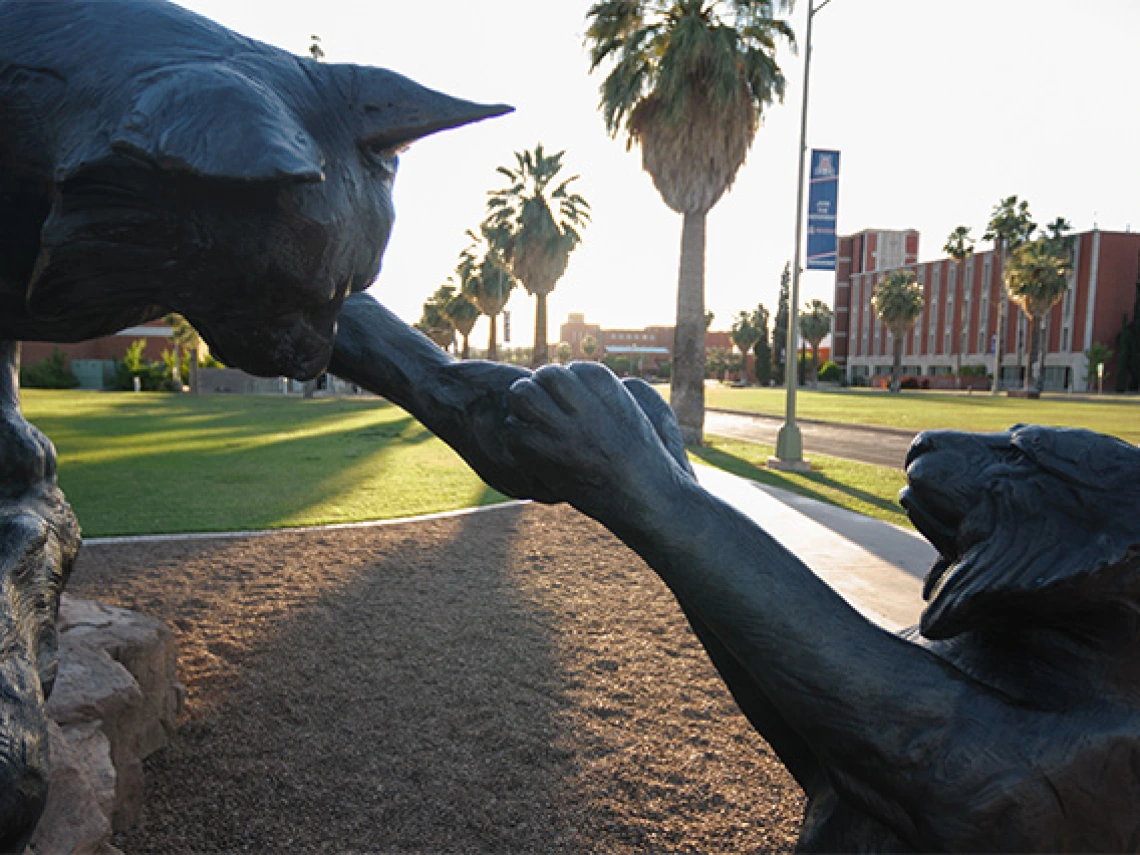UArizona joins seven regional institutions to form new National Science Foundation I-Corps Hub
A collaboration of 8 universities, the Desert & Pacific Region I-Corps Hub supports the commercialization of deep technologies developed at the partner institutions

The U.S. National Science Foundation (NSF) has announced the addition of five new NSF Innovation Corps (I-Corps) Hubs to its National Innovation Network. The University of Arizona, which has been an I-Corps Site since 2016, will now be a part of the Desert and Pacific Region Hub led by Arizona State University and consisting of UArizona, along with Northern Arizona University, the University of California-San Diego, the University of Hawaii, Boise State University, the University of Idaho, and the University of Nevada, Las Vegas.
At the UArizona, Tech Launch Arizona administers the I-Corps program, which includes recruiting instructors and entrepreneurs to teach the I-Corps curriculum and mentor entrepreneurial teams. Each cohort of participants helps teams focus on customer discovery while also touching on lean launch methodology, strategies for fundraising, and other business basics such as financial modeling and marketing.
“With our I-Corps Site having been such a successful program for us, we are honored and excited to have the opportunity to continue this work in collaboration with such a great group of universities,” said Bruce Burgess, director of venture development for Tech Launch Arizona. “This program has been invaluable in helping teams better understand their market opportunities and potential customers, and we look forward to making it available to many more in the coming years.”
Since TLA won its place as an I-Corps Site in 2016, 185 teams have gone through the UArizona program, and the most recent cohort of 8 teams attended their first session on September 22.
“Along with preparing entrepreneurs for launching a company and understanding potential customers, one of the goals has been to prepare our local teams for participation at the national I-Corps level, and many have gone on to participate successfully,” Burgess said.
The I-Corps Hub program builds on the lessons learned through the first decade of the I-Corps program. Specifically, in the program's initial phase, I-Corps Nodes, consortia of universities responsible for delivering a standardized curriculum, and I-Corps Sites, universities providing internal institutional support to scientists and engineers, were funded separately. Under the new approach, the I-Corps Hubs offer a more integrated approach that incorporates lessons learned from the program's initial success. The new operational model provides increased funding and enables scaling I-Corps across the entire nation. Existing NSF-supported Sites and Nodes will continue to participate in the National Innovation Network while NSF transitions to the Hubs.
The first five I-Corps Hubs were awarded in 2021, and each is expanding its reach this year by adding a new partner institution.
The I-Corps program, established in 2011, connects NSF-funded academic researchers across science and engineering with the technological, entrepreneurial, and business communities to help create a National Innovation Network. The program is designed to support the commercialization of deep technologies, which grow from discoveries in fundamental science and engineering.
I-Corps Hubs work to:
- Create and implement tools, resources, and training activities that enhance the nation's innovation capacity;
- Identify, develop, and support promising research that can generate economic value;
- Gather, analyze, evaluate, and utilize the data and insights resulting from the experiences of those participating in local, regional, and national I-Corps programs;
- Provide opportunities to diverse communities of innovators; and
- Share and leverage effective innovation practices on a national scale to impact economic growth and improve quality of life throughout the nation.
Along with the Desert and Pacific Hub, the I-Corps program has established 9 other regional hubs across the nation over the past two years with almost 100 participating universities. Approximately 2800 NSF I-Corps teams have participated in the program to date.

